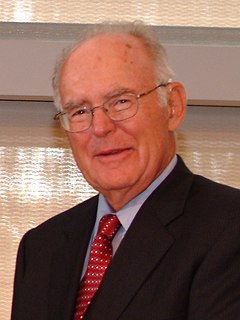A Quote by Irving Langmuir
A chemist who does not know mathematics is seriously handicapped.
Quote Topics
Related Quotes
Statistics is, or should be, about scientific investigation and how to do it better, but many statisticians believe it is a branch of mathematics. Now I agree that the physicist, the chemist, the engineer, and the statistician can never know too much mathematics, but their objectives should be better physics, better chemistry, better engineering, and in the case of statistics, better scientific investigation. Whether in any given study this implies more or less mathematics is incidental.
It seems that every practitioner of physics has had to wonder at some point why mathematics and physics have come to be so closely entwined. Opinions vary on the answer. ..Bertrand Russell acknowledged..'Physics is mathematical not because we know so much about the physical world, but because we know so little.' ..Mathematics may be indispensable to physics, but it obviously does not constitute physics.
There is no thing as a man who does not create mathematics and yet is a fine mathematics teacher. Textbooks, course material-these do not approach in importance the communication of what mathematics is really about, of where it is going, and of where it currently stands with respect to the specific branch of it being taught. What really matters is the communication of the spirit of mathematics. It is a spirit that is active rather than contemplative-a spirit of disciplined search for adventures of the intellect. Only as adventurer can really tell of adventures.
Mystery is an inescapable ingredient of mathematics. Mathematics is full of unanswered questions, which far outnumber known theorems and results. It's the nature of mathematics to pose more problems than it can solve. Indeed, mathematics itself may be built on small islands of truth comprising the pieces of mathematics that can be validated by relatively short proofs. All else is speculation.
A first fact should surprise us, or rather would surprise us if we were not used to it. How does it happen there are people who do not understand mathematics? If mathematics invokes only the rules of logic, such as are accepted by all normal minds...how does it come about that so many persons are here refractory?





































